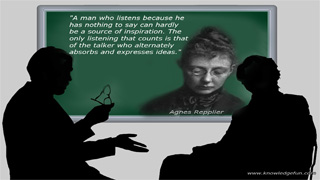Continued Education
Laboratory Notes
The form for laboratory notes varies with the science and is usually prescribed by the instructor. Reports of experiments are usually written up in the order: Object, Apparatus, Method, Results, Conclusions. When detailed instructions are given by the instructor, follow them accurately. Pay special attention to neatness. Instructors say that the greatest fault with laboratory note-books is lack of neatness. This reacts upon the instructor, causing him much trouble in correcting the note-book. The resulting annoyance frequently prejudices him, against his will, against the student. It is safe to assert that you will materially increase your chances of a good grade in a laboratory course by the preparation of a neat note-book.
The key-note of our century is economy, the tendency in all lines being toward the elimination of waste. College students should adopt this aim in the regulation of their study affairs, and there is much opportunity for applying it in note taking. So far, the discussion has had to do with the content of the note-book, but its form is equally important. Much may be done by utilization of mechanical or electronic devices to save time and energy.
First, write in ink. Pencil marks blur badly and become illegible in a few months. Remember, you may be using the notebook twenty years hence, therefore make it durable.
Second, write plainly. This injunction ought to be superfluous, for common sense tells us that writing which is illegible cannot be read even by the writer, once it has "grown cold."
Third, take care in forming sentences. Do not make your notes consist simply of separate, scrappy jottings. True, it is difficult, under stress, to form complete sentences. The great temptation is to jot down a word here and there and trust to luck or an indulgent memory to supply the context at some later time. A little experience, however, will quickly demonstrate the futility of such hopes; therefore strive to form sensible phrases, and to make the parts of the outline cohere. Apply the principles of English composition to the preparation of your note-book.
A fourth question concerns size and shape of the note-book. These features depend partly upon the nature of the course and partly upon individual taste. It is often convenient and practicable to keep the notes for all courses in a single note-book. Men find it advantageous to use a small note-book of a size that can be carried in the coat pocket and studied at odd moments.
A fifth question of a mechanical nature is, which is preferable, bound or loose-leaf note-books? Generally the latter will be found more desirable. Leaves are easily inserted and the sections are easily filed on completion of a course.
It goes without saying that the manner in which notes, are to be taken will be determined by many factors, such as the nature of individual courses, the wishes of instructors, personal tastes and habits. Nevertheless, there are certain principles and practices which are adaptable to nearly all conditions, and it is these that we have discussed. Remember, note-taking is one of the habits you are to form in college. See that the habit is started rightly. Adopt a good plan at the start and adhere to it. You may be encouraged, too, with the thought that facility in note-taking will come with practice. Note-taking is an art and as you practise you will develop skill.
We have noted some of the most obvious and immediate benefits derived from well-prepared notes, consisting of economy of time, ease of review, ease of permanent retention. There are other benefits, however, which, though less obvious, are of far greater importance. These are the permanent effects upon the mind. Habits of correct thinking are the chief result of correct note-taking. As you develop in this particular ability, you will find corresponding improvement in your ability to comprehend and assimilate ideas, to retain and reproduce facts, and to reason with thoroughness and independence.
Habitual acts do not have to be actively directed by consciousness. While they are being performed, consciousness may be otherwise engaged.
What You Should Know
Our mind is arranged in such habitual patterns, that a large part of what you do and think during the course of twenty-four hours is habitual. Twenty years hence you will be even more bound by this overpowering despot.Since you cannot avoid forming habits, it is very important that you seek to form those that are useful and desirable. Guard the pathways leading to the brain. Nerve tissue is impressible and everything that touches it leaves an ineradicable trace.
You can control your habits to some extent, by observing caution in permitting things to impress you. Many unfortunate habits arise from neglect of this fact.
Nerve pathways should then be guarded with respect to what enters. They should also be guarded with respect to the way things enter. Remember, as the first pathway is cut, subsequent nervous currents will be directed. Consequently if you make a wrong pathway, you will have trouble undoing it.
Habits are most easily formed in youth, for this is the period when nerve tissue is most easily impressed and modified.





